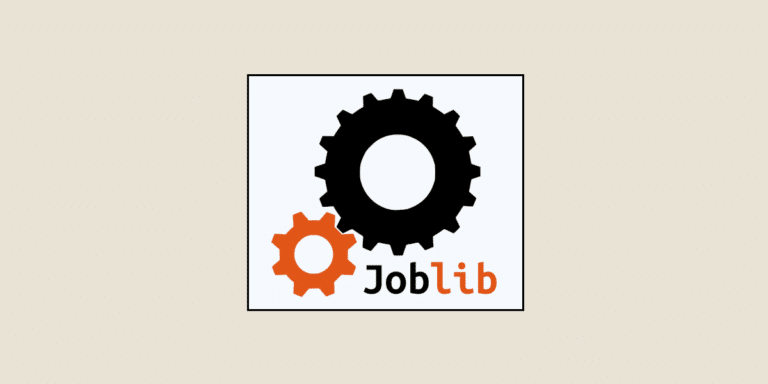La parallélisation peut être une solution efficace lorsque l’on souhaite accélérer ses processus de programmation, mais encore faut-il savoir le faire correctement.Parallelization can be an effective solution when you want to speed up your programming processes, but you need to know how to do it properly.
Today, many libraries and programming software packages offer the possibility of automating this technique. Joblib, a Python library, offers this possibility in a quick and easy way. Find out more about its capabilities and how to use it for future projects.
What is Joblib?
Joblib is an open-source library for the Python programming language that facilitates parallel processing, result caching and task distribution. It has been designed to simplify computationally intensive tasks by enabling developers to parallelize operations, speed up calculations and reduce overall execution time.
How do I use it?
To use Joblib correctly, there are several parameters to consider when installing it:
- Joblib installation: Start by installing Joblib using pip: pip install joblib.
- Importing modules: Import the required modules into your Python script:
from joblib import Parallel, delayed. - Function parallelization:Use the Parallel function to parallelize the execution of a function on several data items in parallel.
- Using the delayed function postpones the function call until parallelism is activated.
- Caching: Use Joblib’s Memory function to create a cache for your functions. This can greatly improve performance by avoiding repeated recalculation.
- Error handling:Don’t forget to handle errors when parallelizing. Joblib provides mechanisms for handling errors and recovering valid results in the event of failure.

What are the advantages of Joblib?
The main advantage of using Joblib is that it reduces costs and job programming time. Other advantages include
- Ease of parallelism: Joblib lets you run functions in parallel on several processor cores, thus fully exploiting the power of your machine. This can considerably reduce execution time, which is particularly useful for resource-intensive tasks.
- Efficient caching: Caching of function results is another Joblib strength. Once a function has been executed with a certain set of parameters, the results can be cached in memory. When the same function is called later with the same parameters, the results are retrieved from the cache, avoiding unnecessary recalculation and speeding up execution.
- Job distribution: Joblib also facilitates the distribution of jobs across different cores or even different nodes in a computing cluster. This makes it an excellent option for applications requiring parallelization on remote machines.
- Simple interface: Joblib offers an easy-to-use interface, making parallelization and caching accessible even to developers less familiar with advanced concepts of concurrency and parallelism.

By now you’re familiar with all the advantages of Joblib, a Python programming library designed to speed up intensive calculations, data processing and parallelization for developers.










